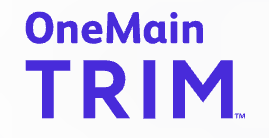Knowing how to organize your bill payments ensures that your money goes where it needs to go and at the right time. In fact, having a bill payment process in place is an important part of budgeting. But setting up the right bill payment system is easier said than done. To help, we’ve compiled a list of bill payment tips and some apps that can make the process easier.
Table of Contents
- 1. Use the Right Budget for You
- 2. Create a Master List of Your Bills
- 3. Use a Bill Organizing Station
- 4. Use Autopay When It’s Right For You
- 5. Schedule Recurring Bills Wisely
- 6. Use the Cash Envelope System
- 7. Revisit Your Budget Quarterly
- 8. Stop Paying Bills You Don’t Need
- Best Apps to Organize Bills
- The Bottom Line
The following tips will help you design a bill payment system that suits your personality and budget.
1. Use the Right Budget for You
Many people have misconceptions about budgeting. However, the right budget can set you up for financial success. When I started budgeting twenty years ago (after landing myself in loads of debt), I imagined a lot of boring work with little return on my time.
Little did I know that my budget would be a lifesaver, especially when I unexpectedly found myself a single mom of four.
Success with budgeting requires finding the right approach for you. What worked for me was a printable budget worksheet combined with a zero-based budget template and cash envelopes. Many people use budgeting apps, which can automate much of the process.
2. Create a Master List of Your Bills
All budgets have monthly bills and other bills that are less frequent. For that reason, creating a master list of your bills is a smart move. The following table is an example of what a master list might look like:
| Bill Name | Bill Due Date | Bill Amount | Final Payoff |
|---|---|---|---|
| Mortgage, US Bank | 1st of each month | $1284.75 | ongoing |
| GEICO car insurance | Jan., Apr., July, Oct 5th | $329.67 | ongoing |
| GEICO home insurance | February 1st of each year | $1500.65 | ongoing |
| Daycare | 1st of each month | $1180.00 | August 1, 2027 |
| Satellite TV subscription | 20th of each month | $152.84 | ongoing |
| T-Mobile cell phone | 15th of each month | $98.47 | ongoing |
| Chase car loan | 5th of each month | $478.92 | January 5, 2028 |
A list like the above makes it easier to create a monthly budget and remind you when semi-regular bills are due.
3. Use a Bill Organizing Station
Another way to stay organized is to have a space where you store and manage bills in your home or office. If you need a recently paid bill filed, this is where it goes. Your filing system can be as simple as a mesh organizer or a designated drawer. Another option is to use a spiral-bound binder or notebook designed for budgeting.
Similar to an In Case of Emergency Binder that helps you organize your personal information, a budget binder helps you organize all your financials in one place.
4. Use Autopay When It’s Right For You
Autopay is an automatic transfer you set up to pay a recurring bill on a specific due date. Setting up Autopay to pay bills can make your life much easier. It’s easy to forget about smaller bills such as credit card or subscription payments, but missing those payments can result in costly late fees.
If your budget is tight or your income fluctuates, you may want to avoid automatic bill payments. Having automatic payments taken out of your checking account when the money isn’t there could do more harm than good.
5. Schedule Recurring Bills Wisely
Recurring payments can make managing your money difficult, especially if you’re on a tighter budget. However, a bill-paying process that includes scheduling your recurring bills can help your cash flow.
Make a list of all recurring bills and then rearrange the payment dates to coordinate with your paychecks. For example, if you get paid on the 5th and 20th of the month, schedule your recurring bills on the 10th and 25th as they fit into your budget.
Another tip: Pay larger bills like auto or home insurance monthly instead of quarterly or annually if it helps you live within your means.
6. Use the Cash Envelope System
There’s nothing like using cash to give you a true reality check about your spending habits. While swiping a debit or credit card is more convenient, you can easily lose track of how much you are really spending, and reconciling credit or debit card receipts can be a pain.
Do a test run and live on cash only for a month. Use it to pay for your regular expenses, including gas, groceries, dining out, and entertainment.
See if using cash helps you to think about purchases a bit more before you make them. I personally find that I spend a lot less money when I make purchases with cash. The cash envelope system will also help you stay on track with budget categories such as groceries and dining out.
If you’re searching for a cash envelope system with an electronic touch, consider using a budgeting app such as Tiller Money
7. Revisit Your Budget Quarterly
Another way to keep your bills organized is by revisiting your budget regularly. By doing so, you can assess what you’re spending money on, how much you’re paying, and whether or not an expense is accurate or necessary.
For example, you might revisit your budget and decide you no longer want to pay for cable TV. Some quick research into cable TV alternatives would reveal that you can switch to a popular streaming service for a fraction of what you’re paying for cable or satellite TV.
Or, you might decide you no longer need your gym membership or that you want upgraded home insurance coverage. Revisiting your bills on a quarterly or other basis can help you keep a good eye on your money and any changes to your budget.
8. Stop Paying Bills You Don’t Need
We all have bills that we don’t need to pay. Maybe it’s an online magazine or gaming subscription that you no longer need. Save yourself some money and stop paying them. Make the call, email, and do whatever is necessary to put that money back into your pocket.
Best Apps to Organize Bills
Did you know? There are apps that were created to help you organize your bills. From credit building to spending insights to subscription management, the apps mentioned below have tools that can help you manage your money better.
Cushion

Cost: $4.95 to $12.99 per month
Cushion is an AI-powered app that can help you organize your bills and build credit. When you link your bank accounts and email to Cushion, the app will find and neatly organize your bills and Buy Now, Pay Later payments.
Use your Cushion virtual card as the primary payment for your bills and BNPL payments. Cushion reports your on-time payments to Experian (with plans to report to TransUnion and Equifax soon).
Simplifi

Cost: $3.99 monthly ($2.99/month if paid annually)
Simplifi by Quicken is a money management app that allows you to view your finances in one place when you link your financial accounts. The app also includes spending insights, financial goal setting, and budgeting tools.
Simplifi can help you manage and track your investments, and forecast future investment balances to ensure you’re on track with your goals.
Read our full Simplifi review here for more information.
Rocket Money

Cost: $0 to $12 monthly
Rocket Money is a budgeting app that helps you with everything from organizing your bills to saving more money to subscription management.
The app offers two plans: a free plan and a premium plan. Rocket Money’s free plan includes the following:
- Account linking options so you can see all of your financial information in one place
- Balance alerts for bank accounts, credit cards, and more
- Spend tracking so you can identify where your money goes
- Subscription management
By upgrading to the premium plan for ($4 to $12 per month), you unlock several other features, including a subscription assistant to help you manage or cancel your subscriptions on your behalf, a Rocket Money savings account, and more.
See our full Rocket Money review for more information.
Trim by OneMain

Cost: Free to use, 15% of annual savings if Trim saves you money
Trim by OneMain is an AI app that quietly works to help you save money on your bills. When you link the app to your credit and debit cards, Trim will search for monthly subscriptions and bills.
It finds unwanted subscriptions and will cancel them for you with your permission. Trim will also negotiate money savings on your behalf when it comes to bills you do want.
Trim’s client service reps will work to find you better insurance rates, cable TV rates, and more.
The Bottom Line
A bill-paying system can help you stay on track with all your monthly bills and make managing your monthly expenses more seamless. Remember to use a system that works for you, whether a paper-based system, a spreadsheet, or a bill payment app like the ones mentioned above.
And remember to keep any paper bills in a dedicated location in your home. By using the tips and apps we’ve covered, organizing your bills can be a positive experience.
